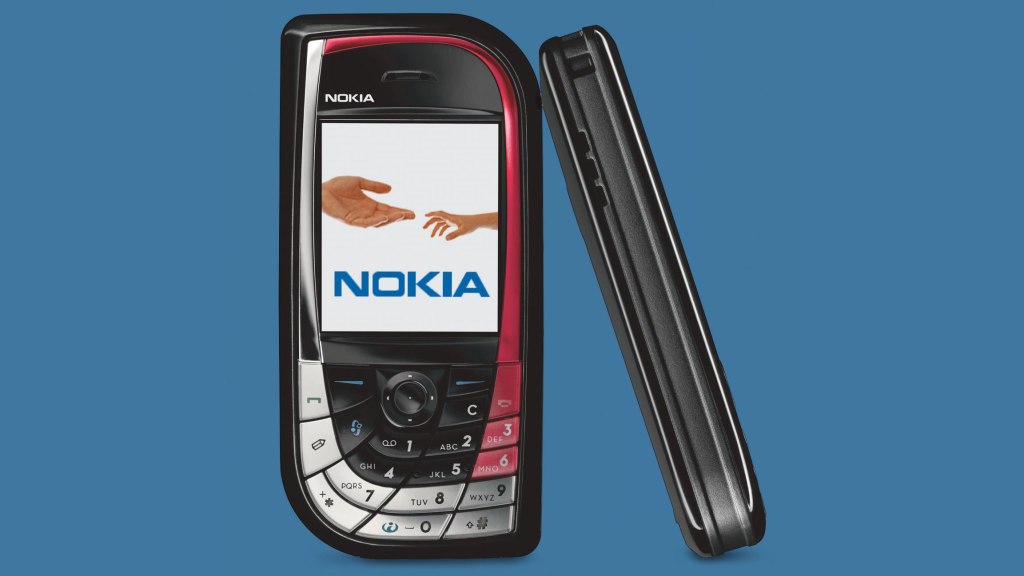Ten years ago the cellphone industry was as teeming with life as a coral reef. Weird, multi-colored Nokias and Samsungs flitted between fronds of seagrass while Sidekicks scuttled in and out of tiny sea caves. Blackberries lumbered through the coral like lions on the hunt, eviscerating all “serious” comers with better software. Apple had released a deeply embarrassing clownfish of a phone in a Motorola joint venture. Rap stars and fanboys paid thousands to get the latest cellphones and there was a website, Bengal Boy, dedicated to showing both bikini-clad women and Motorola PEBLs. It was a strange riotous ecosystem where you could upgrade your phone every few months and never run out of choices.
Now that coral reef is bleached bone white and space gray. There is one kind of phone, the black slab, and two manufacturers. A decade ago phones slipped, slid, and transformed. Now they just slide to unlock.
What would have happened had Cupertino not launched the iPhone when they did? I think Blackberry and Palm would still be alive, their OSes and software churning away on countless phones. The rise of the truly open cellphone – what Android was supposed to be but isn’t – would have created an entirely new ecosystem for cellphone apps and home-brew. We’d have Linux on mobile more than we do now.
Carriers would be more important. They would be able to make deals and sell exclusive and unusual phones. Apple stopped all that in an instant by making AT&T the hottest carrier in the world for a few months. Now a carrier’s sales are defined by Apple’s sales cycle, not the market’s. The latest Android phone from Google makes a solid thump on any carrier that picks it up but the iPhone can make a quarter or a year.
We’d also have some aesthetic differences in phones, at least more than we have now. While the small differences between cellphones are apparent to the aficionado most people either own an “Android” or an iPhone. A decade ago you could choose between multiple “stacks,” mostly written in Java, with very few real apps available for download with no real way to pay for them. Phones existed as self-contained microclimates designed for a few simple purposes. Doing business? Get a Blackberry. Feeling fancy? Get an LG Chocolate. Messaging a lot? Motorola Q was your style.
Apple and Samsung entered into a massive battle in about 2010. At this point most of the variations had died out and the Galaxy line competed with the iPhones on a feature-for-feature basis. GPS, retina displays, and great cameras appeared one after the other on phones from each manufacturer while once-great giants – HTC, LG, Sony Ericsson, Nokia – watched. The dream of an open Android quickly died under this pressure resulting in only two locked OSes and a few outliers. At this point it would be literally impossible to sell an alternative, open or not. Just ask Microsoft and RIM.
A world without iPhone would be interesting. Those once-mighty giants would still be running from the “three phones every six months” playbook releasing any number of specially defined handsets for their low, middle, and high-end segments. Palm would have continued to develop its surprisingly good PalmOS and would probably still be a powerhouse. Smaller manufacturers like HTC would be much bigger and Nokia would definitely be churning out phones that could double as paving stones.
The iPhone took away our choices. It took away software freedom and it defined a market full of ad-supported games and one-size-fits-all design. It made everything a me-too.
But it also led the way for a la carte music sales, streaming, detailed mapping, photo sharing, and aesthetics. It helped us get from the early plastic age into a world of better and more recyclable materials. It moved us away from a riot of color to uniformity and it made manufacturers work harder on the little things instead of shipping and forgetting. It gave us Google, Twitter, and Facebook and propelled Uber into the stratosphere. It build countless millionaires who used its platform to build and sell great apps.
We lost a lot in the past decade. We lost fun. We lost fashion. We lost the entrepreneurial streak that once buoyed cellphone manufacturers. All that is gone, replaced by a cut-throat world of shipping the latest and the greatest to a public that is used to getting the best. There is still room for the unusual and the new in the world of cellphones but it usually trickles up from the low-end markets where there is still impetus for differentiation. Up in the rarified world of $500 handsets you basically get a black slab of glass whether you want it or not.
There has been a lot of talk about the future of mobile and I think it’s definitely about to change. Phones will become less interesting when we can talk to and see our interfaces using aural and AR. AI, however primitive, will kill our contact books and calendar apps. App stores will shrink and then explode as developers learn to use new techniques. Our phones will get thinner thanks to new battery systems and cloud computing will let us do more with less. In short, things are about to change as much as they did in 2007.
Here’s hoping the iPhone can keep up.



































Comment